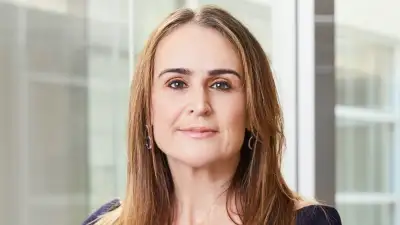(October-2001) A budding industry
The flood of corporate super funds into master trusts has spurned a new industry — that of tender consultants. The major players in this new industry are the larger accounting firms and a handful of independents. It is competitive, but there’s also quite a lot of work out there.
According to one set of APRA figures, corporate super funds fell from 4,500 to 2,000 from September 1998 to September 2000. While other APRA statistics suggest that there are still around 3,000 corporate funds, indicating that about 10 to15 per cent change to a master fund or industry fund each year.
“We moved our first corporate to a master trust in 1993 and we’ve had fairly continuous activity since then,” says Phillips Fox Actuaries joint managing director Michael Rice.
“Employers don’t make money from superannuation. It takes up time. There is liability. And if there’s no surplus in the defined benefit fund, there’s not much reason being in it.
“That funds of $150-200 million are converting, shows that the economies of scale in stand-alone funds needs to be bigger than that, somewhere around $500,000, to justify costs of establishing a Web site, offering investment strands, educational programs, and so on.
“I rarely come across a company that wants to preserve their fund at all costs,” he says.
Ausuper principal Stephen Moore was probably the first to set up a tender consultancy business, when he started seven years ago. “Before that, actuaries and administrators had managed the tenders for their own companies,” Moore says.
Since then, other service providers like Moore have appeared — including Chant West, PricewaterhouseCoopers and Arthur Anderson.
“We have a point of difference because there is nothing for the others to standardise the process of tender. We worked with Standards Australia to have a standardised process in 1996,” he says.
“Over the years our business has grown magnificently. We have done hundreds of tenders. That’s all we do and its full-time. I have six people working with me. We have also started a related business in the public sector for financial services.”
According to Moore, there are three major phases of the process and the total exercise may extend for six months.
“The first phase is quantifying and qualifying the current arrangements, cost and service. Then we need to know the specifications and then involve the trustees for the requirements,” he says.
Moore adds that after the tender is accepted and implemented he still encourages trustees to audit service levels at particular intervals to test and qualify what is being provided relative to the contract provision.
“If I had my own way I’d have fixed term contracts of maybe three years. Helen Young [fund secretary of the Woolworths Group Superannuation Scheme] says all services are re-tendered every three years for price and terms competition.”
Back in early 1997 Chant West principal Warren Chant began consulting for companies that were keen to move their corporate super fund into a master trust, industry fund or public offer fund.
“I could see it was going to get bigger and the catalyst was compulsory superannuation,” Chant says.
“Compulsory super has changed the way we look at superannuation. People realised they were going to need to save for their own retirement and many employers have been looking at what they could provide. What was once a benefit to key or senior staff 10 years ago is now seen as a right.”
A couple of years ago the thinking was that companies would make a decision about the fate of their fund when choice-of-fund came in. For six months business suffered because choice didn’t happen. “Corporates were saying ‘we don’t know what’s happening. Come back and see us when you know what’s happening,’ but then corporates started to think differently,” Chant says.
“Things have changed since I started,” says PricewaterhouseCoopers financial services partner David Coogan.
People have been moving out of corporate funds for the past three years and the trend has accelerated in the past 12 to18 months. It’s not so much to do with choice but with the whole complexity of the industry, including the FSR Bill, privacy laws, SIS and trustee compliance.
“We are targeting mainly those funds with $20 million to $1 billion. We are looking at options of whether going to a master trust or industry fund or just outsourcing the trustee role is the most appropriate option.”
Recommended for you
Australia’s superannuation sector has expanded strongly over the June quarter, with assets, contributions, and benefit payments all recording notable increases.
The Super Members Council (SMC) has called on the government to urgently legislate payday super, warning that delays will further undermine the retirement savings of Australian women.
ASFA has highlighted that regulation should not be “set and forget” and calls for a modernised test to meet future needs.
The super fund is open to the idea of using crypto ETFs to invest in the asset class, but says there are important compliance checks to tick off first.











